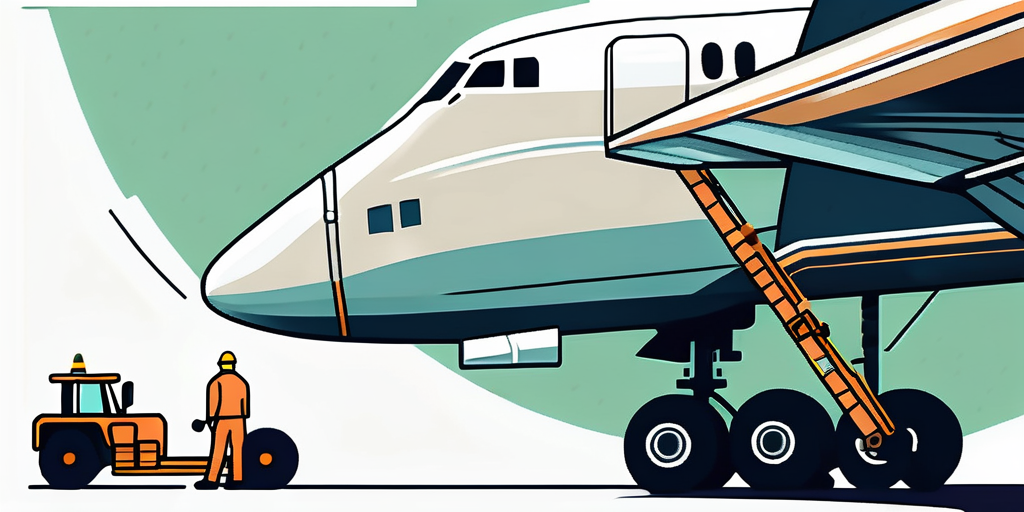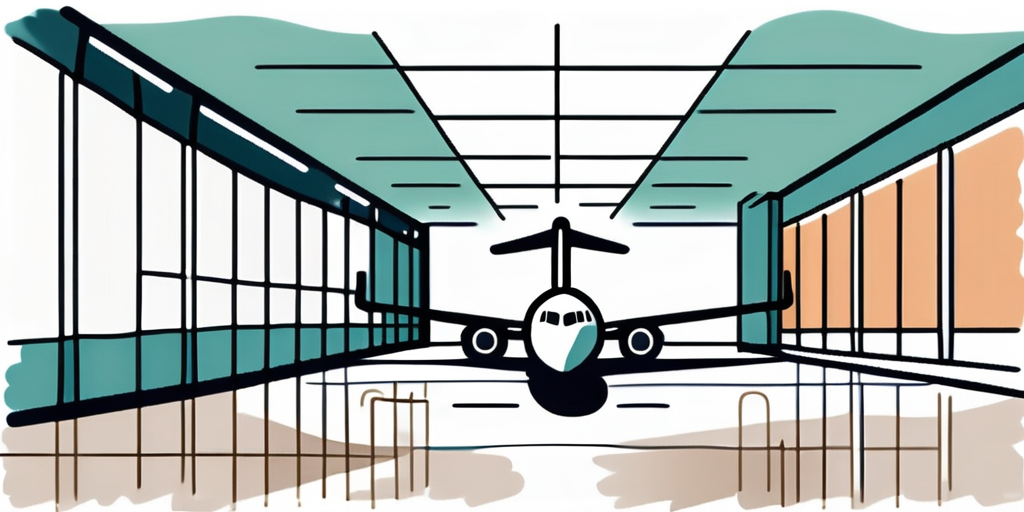Navigating Extraordinary Circumstances Flight Delay: What You Need to Know
Get insights into flight delays attributed to extraordinary circumstances. Understand regulations, compensation, and strategies to manage delays.
Extraordinary circumstances flight delays can be a frustrating experience for any traveler. However, understanding the factors that contribute to these delays can help you navigate through them more effectively. In this article, we will explore the definition of extraordinary circumstances, the legal framework surrounding them, how to identify such delays, your rights and compensation in these situations, as well as tips for dealing with them and frequently asked questions.
Understanding Extraordinary Circumstances in Air Travel
Extraordinary circumstances refer to events that are beyond the control of the airline and are not typically part of their normal operations. These events can include severe weather conditions, natural disasters, air traffic control restrictions, political unrest, security threats, and strikes among others. Due to the unforeseen nature of these circumstances, airlines may be unable to conduct flights as scheduled, leading to delays and disruptions for passengers.

Definition of Extraordinary Circumstances
The exact definition of extraordinary circumstances may vary depending on the specific laws and regulations of the country or region where the flight is scheduled to operate. Generally, these circumstances are considered to be events that are deemed "unavoidable" and "unforeseeable," meaning that they are beyond the control of the airline and could not have been anticipated or prevented.
Legal Framework Surrounding Extraordinary Circumstances
International aviation regulations, such as the Montreal Convention, outline the rights and responsibilities of passengers and airlines in the event of extraordinary circumstances. These regulations specify that airlines are exempt from liability for damages or compensation when the delay or cancellation of a flight is directly caused by such circumstances. However, airlines are still obligated to provide certain support and assistance to affected passengers during the delay.
Let's delve deeper into some of the extraordinary circumstances that can disrupt air travel. Severe weather conditions, for example, can range from heavy snowstorms that blanket runways to powerful thunderstorms that pose a risk to aircraft. These weather events can make it unsafe or impossible for flights to take off or land, leading to delays and cancellations that affect passengers' travel plans.
Natural disasters, another category of extraordinary circumstances, can strike unexpectedly and wreak havoc on air travel. Earthquakes, hurricanes, and volcanic eruptions are just a few examples of natural events that can have a significant impact on airport operations. In such cases, airports may need to temporarily shut down or restrict flights for safety reasons, causing disruptions for passengers.
Political unrest and security threats also fall under the umbrella of extraordinary circumstances. Civil unrest, protests, or acts of terrorism can create an unsafe environment for air travel, prompting airlines to cancel or divert flights to ensure the safety of passengers and crew. These situations can be highly unpredictable and require swift action from airlines to mitigate potential risks.
Furthermore, strikes by airline employees or air traffic controllers can disrupt air travel on a large scale. Strikes can result from labor disputes, demands for better working conditions, or disagreements over pay and benefits. When these strikes occur, airlines may have no choice but to cancel or reschedule flights, causing inconvenience and frustration for passengers.
It is important to note that while extraordinary circumstances may be beyond the control of airlines, they still have a responsibility to assist affected passengers. This assistance can include providing meals, accommodation, and alternative transportation options during the delay. Airlines strive to minimize the impact of these circumstances on passengers' travel experience, recognizing the inconvenience and frustration they can cause.
In conclusion, understanding extraordinary circumstances in air travel is crucial for both passengers and airlines. By recognizing the factors that can disrupt flights and the legal framework surrounding these events, passengers can have a better understanding of their rights and airlines can navigate these challenges while prioritizing passenger safety and well-being.
How to Identify an Extraordinary Circumstances Flight Delay
While it may not always be immediately clear whether a flight delay falls under extraordinary circumstances or not, there are certain common causes that can help you identify them.
Understanding the intricacies of what constitutes an extraordinary circumstances flight delay can be crucial for passengers seeking compensation or assistance during such situations. By recognizing the common triggers for these delays, travelers can better navigate the complexities of air travel disruptions.
Common Causes of Extraordinary Circumstances Delays
-
Severe weather conditions: Snowstorms, hurricanes, or thunderstorms can lead to airport closures or significant delays. These natural phenomena are beyond the control of airlines and can have far-reaching impacts on flight schedules.
-
Air traffic control restrictions: Congestion in the airspace or operational issues at air traffic control centers can result in delays. The intricate coordination required for safe and efficient air travel can be disrupted by various factors, leading to unavoidable delays.
-
Natural disasters: Earthquakes, volcanic eruptions, or tsunamis can disrupt air travel in affected regions. The aftermath of such disasters can pose challenges to the aviation industry, affecting not only local flights but also international air traffic.
-
Political unrest or security threats: Government actions, civil unrest, or security concerns may lead to flight cancellations or reroutings. In volatile regions or during times of heightened security alerts, airlines must prioritize passenger safety, sometimes resulting in unavoidable delays.
-
Strikes: Labor disputes involving airline employees or air traffic control personnel can cause flight disruptions. Industrial actions within the aviation sector can have cascading effects on flight operations, impacting travelers and airline schedules.
Communication from Airlines During Delays
It is essential for airlines to maintain open and transparent communication with passengers during extraordinary circumstances delays. Airlines should provide timely updates on the status of the flight, the reasons for the delay, and any available alternative arrangements. Passengers should also be informed of their rights and entitlements, as well as the expected duration of the delay.
Clear and effective communication from airlines is not only a regulatory requirement but also a fundamental aspect of customer service. By keeping passengers informed and engaged during challenging situations, airlines can enhance trust and mitigate the frustrations often associated with flight delays.
Rights and Compensation in Extraordinary Circumstances
Passengers' rights and compensation during extraordinary circumstances delays differ depending on various factors, such as the airline, the departure and arrival countries, and the specific circumstances of the delay. It is important to understand your rights as a passenger in these situations.

Understanding Your Rights as a Passenger
Generally, passengers have the right to receive care and assistance from the airline during a delay caused by extraordinary circumstances. This includes provisions for meals, accommodations, transportation, and communication. Additionally, passengers should be offered the opportunity to rebook their flights or claim a refund, depending on the circumstances and applicable regulations.
It is crucial for passengers to be aware of their rights not only in terms of immediate assistance but also in terms of long-term compensation. In some cases, passengers may be entitled to compensation beyond the initial care provided by the airline. This could include reimbursement for additional expenses incurred due to the delay or compensation for the inconvenience caused.
Compensation Guidelines for Extraordinary Circumstances
While airlines are generally exempt from providing compensation for delays caused by extraordinary circumstances, there may be exceptions depending on local laws and regulations. Some legal frameworks require airlines to compensate passengers if the delay exceeds a certain threshold, typically several hours. It is advisable to familiarize yourself with the specific compensation guidelines applicable to your flight and consult with the airline or relevant authorities for additional information.
Furthermore, it's important to note that the definition of "extraordinary circumstances" can vary between different jurisdictions and airlines. Factors such as weather events, air traffic control restrictions, security threats, and unexpected mechanical issues are commonly considered extraordinary circumstances. Understanding how these factors are interpreted in the context of passenger rights can help individuals navigate the complexities of seeking compensation in such situations.
Tips for Navigating Extraordinary Circumstances Delays
While it may not be possible to completely avoid or control extraordinary circumstances delays, there are steps you can take to better prepare yourself and minimize the inconvenience.
Preparing for Potential Delays
-
Stay informed: Monitor weather conditions and travel advisories before your departure. Sign up for airline notifications and check for updates on their website or mobile app.
-
Allow extra time: Plan your travel itinerary with some flexibility, allowing ample time between connecting flights or important engagements.
-
Pack essentials: Carry necessary items such as medications, toiletries, and a change of clothes in your carry-on bag.
Steps to Take During a Delay
-
Stay calm and patient: Understand that the delay is beyond your control and remain patient while the airline handles the situation.
-
Communicate with the airline: Seek information from airline staff regarding the status of your flight and any available options for rebooking or accommodation.
-
Utilize available resources: Take advantage of airport amenities, such as lounges or Wi-Fi, to make your wait more comfortable. If necessary, consider booking a hotel nearby if the delay extends overnight.
Frequently Asked Questions About Extraordinary Circumstances Delays
- Can I claim compensation for extraordinary circumstances?
 While compensation for extraordinary circumstances delays is generally not available, there may be exceptions depending on the specific circumstances and applicable regulations. Check with the airline or relevant authorities for more information.
While compensation for extraordinary circumstances delays is generally not available, there may be exceptions depending on the specific circumstances and applicable regulations. Check with the airline or relevant authorities for more information.
- What can I do if my flight is delayed due to extraordinary circumstances?
If your flight is delayed due to extraordinary circumstances, the airline is typically obligated to provide you with care and assistance, including provisions for accommodation, meals, and communication. They should also offer rebooking or refund options based on the circumstances and applicable regulations.
In conclusion, navigating extraordinary circumstances flight delays requires understanding the definition, common causes, and legal frameworks surrounding such delays. Knowing your rights as a passenger and the available compensation guidelines can help you make informed decisions if you find yourself in such a situation. By following the tips provided and staying calm during delays, you can mitigate the inconvenience and navigate through these extraordinary circumstances more smoothly.
Get the Compensation You Deserve with ClaimCompass
Encountered a flight delay under extraordinary circumstances? You might still be eligible for compensation. ClaimCompass specializes in helping air passengers claim up to 600€ for flight disruptions. With our expertise in EU Regulation 261/2004 and a no-win, no-fee policy, we make the process stress-free. Check your eligibility for free using our compensation calculator and let us handle the rest. If you're entitled to compensation, we'll fight to get you every cent you're owed. Submit a claim with ClaimCompass today and turn your travel frustrations into a victory for your wallet.
